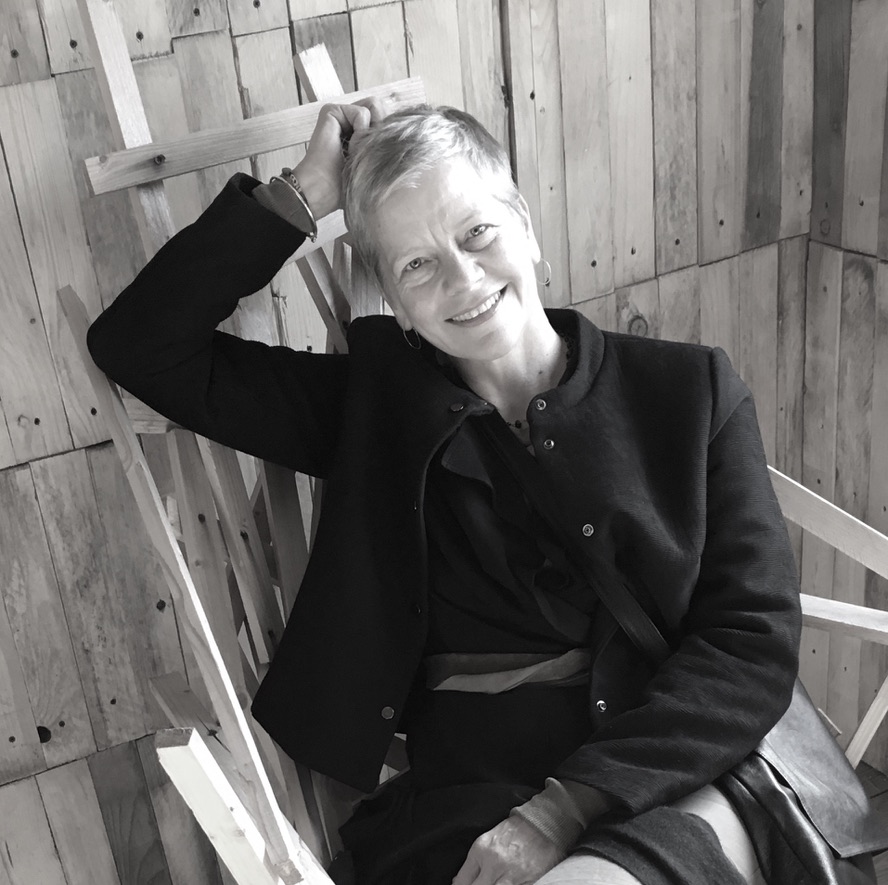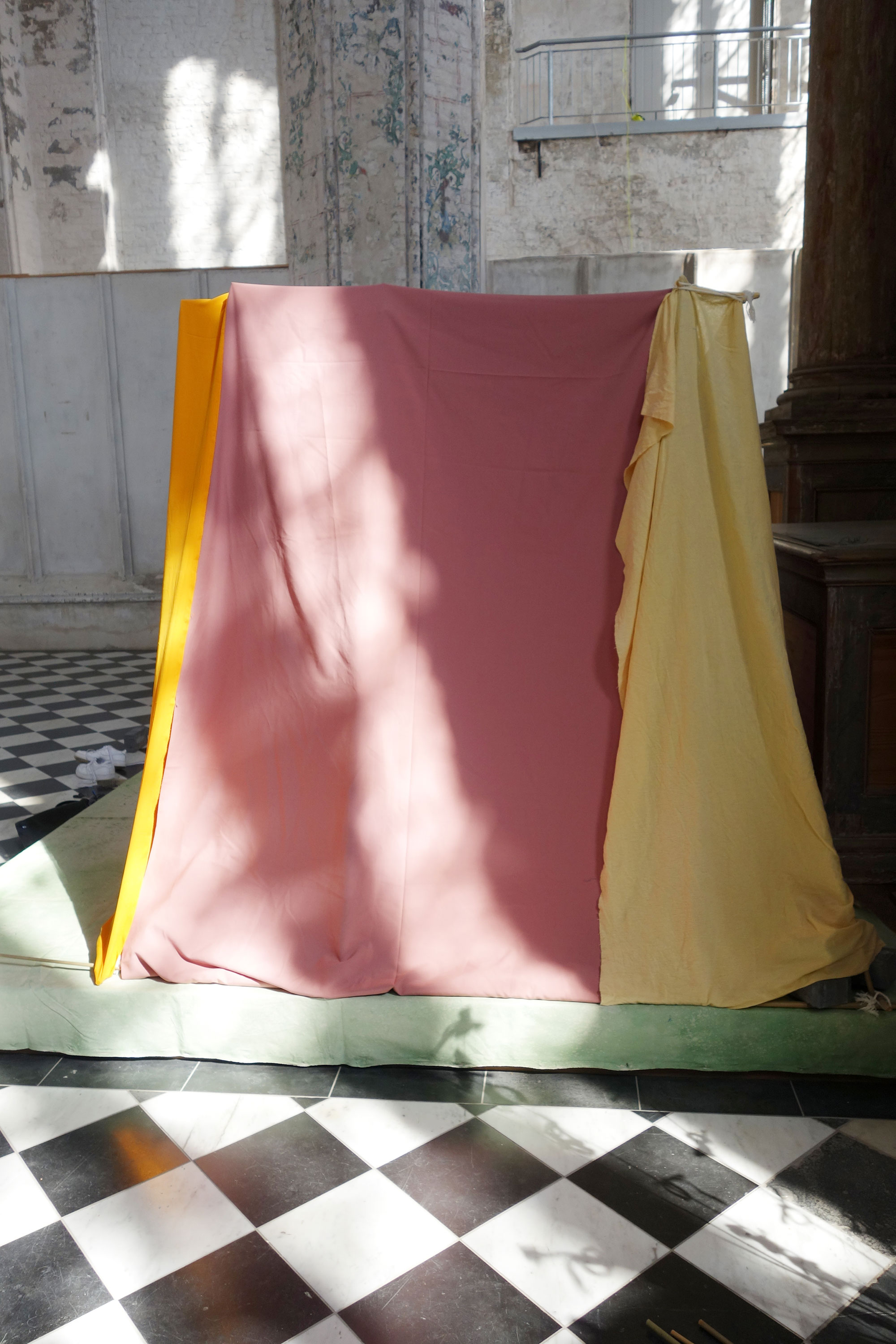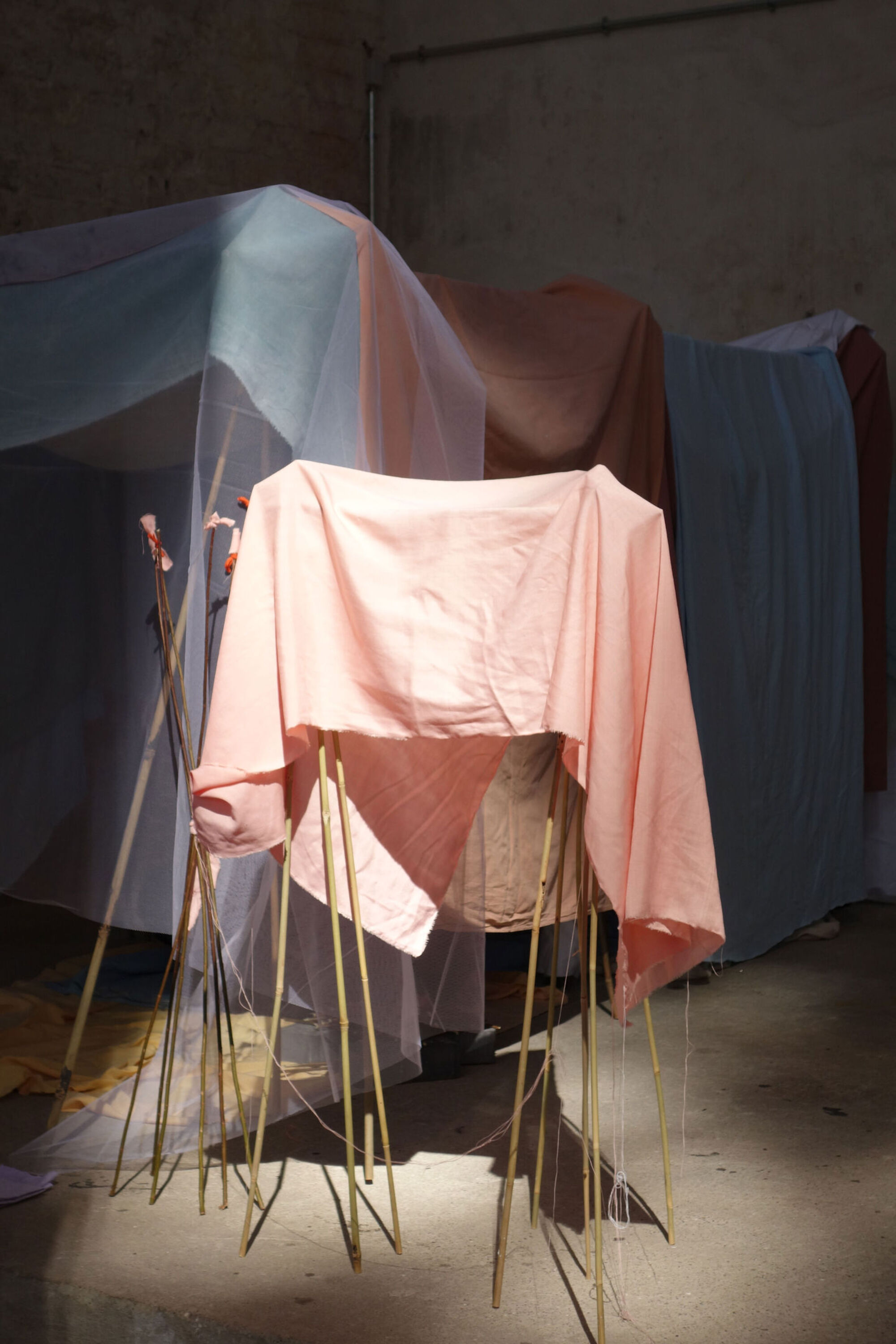Duration of study: 4 semesters
Graduation: diploma
Study prerequisite: general higher education entrance qualification or proof of a university education in the field of arts; in exceptional cases, any other university education with appropriate artistic orientation and a three to six week traineeship in the field of art therapy or a related field and proof of passed aptitude test.
The seminars are held in German, therefore proof of language level C1 is required for an application (more detailed information on proof can be found in the matriculation regulations of the HfBK Dresden).
Application: Dates and deadlines, Application formalities
Profile
The aim of the Art Therapy programme is to strengthen the inherent creative energy of every person, the self-healing powers and self-responsibility. It combines the disciplines of fine arts with therapeutic methods. Art Therapy works primarily with the resources, sources and strengths of people, without evading their conflicts. Art Therapy as a low-threshold offer helps people visualise fears, hopes and desires and come up with surprising solutions through design. In the clinical context, art-therapeutic work has become an integral part of therapy programmes, and is gaining more and more importance especially in sociocultural, interdisciplinary and inter-cultural fields.
 © Christiane Viereck
© Christiane ViereckKraus, Lisa-Maria
Art Therapy
Phone: | |
Email: |
Schrems, Kerstin
Art Therapy
Phone: | |
Email: |
von Stein, Lioba
Art Therapy
Phone: | |
Email: |
Theoretical Basics
Prof. Torsten Hoke
Dipl.-Psych. Katja Pieper
Prof. Dr. Ralf T. Vogel
Prof. Dr. Marc Schipper
Prof. Dr. Christian Widdascheck
Prof.in Dr. Alexandra Hopf
Methods of Art Therapy
Dr.in Marianne Eberhardt-Kaechele
Prof.in Klara Schattmayer-Bolle
Dr. Marianne Eberhardt-Kächele
Michael Ganß
Prof. Thomas Staroszynski
Prof.in Kerstin Hof
Prof.in Dr. Alexandra Hopf
Kerstin Schrems
Lisa-Maria Kraus
Research and Practice in Art Therapy
Prof.in Dr. Alexandra Hopf (Artistic and Practise Research)
Prof. Dr. Tobias Loemke (Artistic Research)
Kerstin Schrems (Art Therapy Internship)
Fields of Practice
Simon Bosch (Queere Identität)
Freya Neumann (Suchterkrankte Jugendliche)
Juliana Ortiz (Pädiatrische Onkologie)
Stefanie Tappe (Kinder- und Jugendpsychiatrie)
Supervision
Hedda Spürck-Wagner
Prof.in Marielle Renz
Kerstin Schrems
What's on?
Art Therapy
Handlung, Körper und Leib in der Künstlerischen Forschung
Freitag, den 11.04. von 17.30 – 19.30 Uhr mit Vorträgen von Till Baumhauer und Prof. Dr.in Alexandra Hopf
Art Therapy
Grundlagen Künstlerischer Forschung und Projektentwicklung
Freitag 14.03.25 von 17.30–19.30 Uhr: Vortrag von Prof. Dr. Till Ansgar Baumhauer
Art Therapy
vom handeln und behandelt werden
Eröffnung am 20.07.2024 um 16:30 Uhr, Hochschule für Bildende Künste Dresden, Foyer der Bibliothek, Güntzstr. 34, 1. OG | Ausstellungsdauer von 20.07.–05.08.2024
Art Therapy
Künstlerische Forschung und ästhetische Reflexionsformen
Freitag 24.05. von 17.30–19.30 Uhr mit Vorträgen vonTill Baumhauer und Prof. Dr.in Alexandra Hopf
Page 2 of 3
The Hochschule für Bildende Künste Dresden has been offering the postgraduate programme of Art Therapy since 1996. The focus of teaching is on the parallels, differences and synergies between artistic and therapeutic processes. The programme regularly organises conferences and conventions, publishes specialist publications and cooperates with clinics, educational institutions and museums at various levels.
Well-known guest lecturers deepen the broad spectrum of art-therapeutic methods from psychodynamic to systemic orientation with interdisciplinary and inter-cultural approaches as well as an emphasis on non-verbal aspects. A study group of about 20 students ensures a very personal exchange during the two-year study programme.
In the postgraduate programme, free and applied artists get the opportunity to integrate their own artistic experience into the therapeutic process and to learn the therapeutic methods necessary for this: the knowledge of mental states and psychological-medical knowledge are necessary prerequisites for responsible and careful therapeutic work. Female artists are accustomed to creating personal images and overcoming experiences of crises and blockades; at the same time, they are aware of the happiness that creative work can generate.
During seminars, self-perception and perception of others are taught in a differentiated manner through the high self-awareness component of the seminars. Basics of developmental psychology, clinical psychology and psychosomatics give students an insight into different therapeutic schools and handling of different clinical pictures. The training also focusses on the analysis of aesthetic expression. Course-accompanying internships, full-time internships as well as project internships during the semester break make it possible to directly test methodological knowledge. One's own art-therapeutic attitude and the analysis of practical experiences are a subject of supervision. These basics enable artists to develop their own art-therapeutic self-understanding.
The postgraduate programme of Art Therapy begins in all even years as a four-semester, full-time course with approximately 30 hours per week per semester.
The course content is divided into consecutive modules. The methodological and theoretical components of the course are supplemented by min. 660 hours of continuously supervised internships. The courses contain varying levels of self-awareness components. A course-accompanying teaching therapy/self-therapy is recommended.
Theoretical Basics
Modules 1 – 3
- Developmental psychology and personality training
- Psychology and development of artistic design
- Clinical psychology: salutogenetic approach, projective methods, therapeutic schools
- Psychopathology: Psychiatry and psychosomatics
- Ethical, image-theoretical and historical basics
Methods of Art Therapy
Modules 4 – 6
- General Methodology: Design analysis, basic art-therapeutic behaviour (counselling techniques, group processes, transference phenomena), impact factors, indications, (artistic) interventions
- Specific methodology: special art-therapeutic methods, (form-analytical, phenomenological, depth psychological, systemic), interdisciplinary forms of therapy; emphasis on non-verbal aspects
- Art-therapeutic interventions and non-verbal aspects
- Interdisciplinary creative therapeutic approaches
Artistic focus
Module 7
- Artistic reflection: synergy/convergences and divergences
- Consolidation of one's own artistic-therapeutic standpoint
- Art in the social and scientific context
- Exhibition, topic-oriented presentation
Research and Practice in Art Therapy
Modules 8 – 10
- Art-therapeutic research approaches and research work
- Practice and case documentation
- Supervision: expert supervision and coaching
- Fields of practice: specific fields of work, client groups and institutions; art therapy as an integrative professional field, aspects of the occupational profile
- Internships: course-accompanying, full-time, project work
Module 11 Internships
Semester-long, project and block internships
Module 12 Diploma thesis
Independent scientific work on a topic relevant to art therapy


